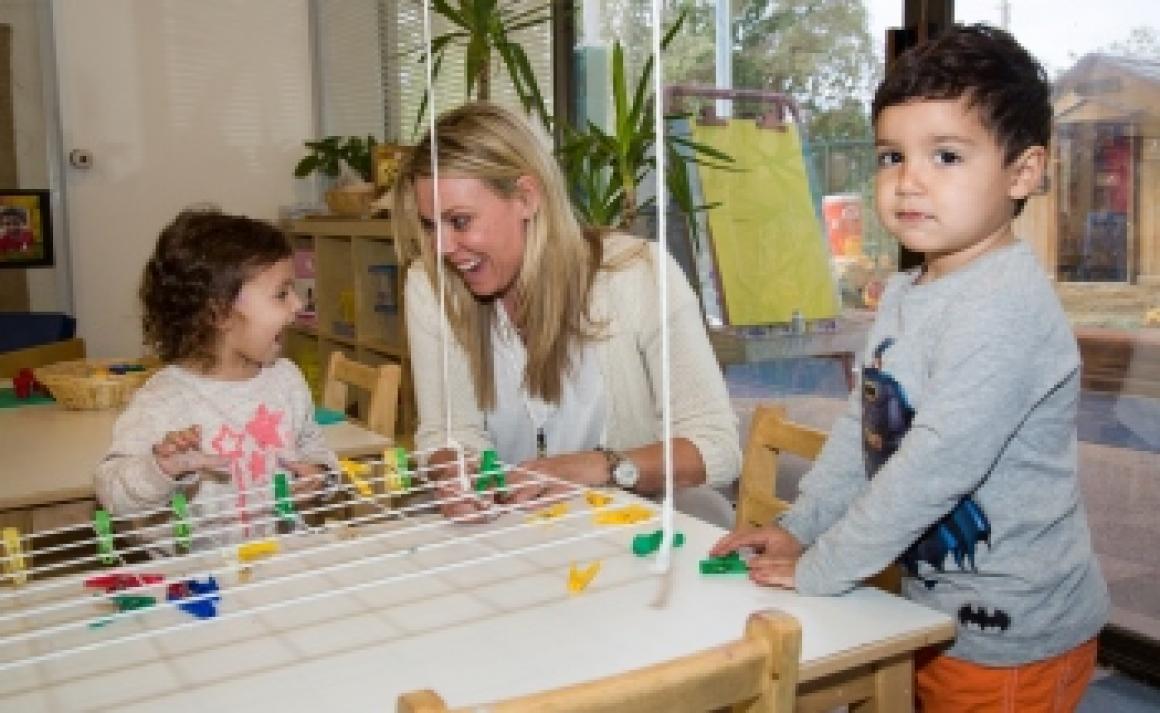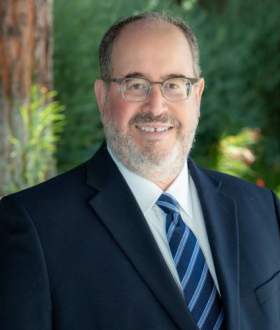
The Changing Early Childhood Landscape in Los Angeles
Not so long ago, Jewish preschools were thought of as “child care” and/or a way for their parent organizations (synagogues and day schools) to increase membership. In the past few decades, these programs have moved far beyond those limited roles, gaining in perceived importance. As the benefits and importance of early childhood education have become more widely acknowledged, parents have bought in - preschool has pretty much become a “given” among Jewish parents.
From our perspective at BJE, this change is good: for children, for families, and for the community. We see several exciting trends and initiatives in Los Angeles that are not only improving program quality, but are helping people appreciate the importance of early childhood education in entirely new ways.
The Landscape: Los Angeles is home to 54 BJE-affiliated Jewish preschools, 38 of which belong to synagogues, 10 belong to Jewish Day Schools, and 6 are independent. Over 6,000 children regularly attend classroom-based programs (at least 2 days a week). Countless others participate in weekly or occasional programming such as Parent (or Grandparent) & Me, or special Kabbalat Shabbat programs. The early childhood centers are spread out over 850 square miles. In some cases older siblings also attend a day school located in the same building as the preschool, while in some cases the preschool facility is one of several morning “drop-offs” that may be 30 minutes away from one another.
Social Connectors: While there has been a nationwide trend to see enrollment in specific preschools as a path to admission to elite private schools, parents in Los Angeles who choose Jewish preschools report having very different motivations for their choices. While Los Angeles gives the impression that social media is an all-encompassing presence, we know that people feel a greater distance from one another, even a sense of isolation. Preschools here have increasingly stepped into the role of social connectors, what sociologist Ray Oldenburg referred to as “third places.” It’s not surprising, then, that in a recent Los Angeles Jewish Federation study, parents’ “first choice” criterion in choosing a preschool was whether it had a “warm and nurturing environment” (69%). Contrary to what some would have predicted, “school philosophy and approach” and the “secular curriculum” were far behind. The study also found that 92% of the parents were grateful for being part of a community, and 58% of parents reported that being part of a Jewish early childhood program has led to increased Jewish practices and involvement in the Jewish community. This is a virtuous cycle.
Neurological Development: While many think of early childhood education as “pre-school” (a time for a child to learn basic school-related information), a lot more is developing inside a child’s brain. The Simms Mann Institute, and its The First 36 Project, in partnership with BJE and the Jewish Federation, trains parent educators to use lessons from cutting-edge neuroscience research to strengthen the bonds between parent and child. At one recent program for pulpit Rabbis and their ECE directors, researchers shared data about how building group connections for a child encourages brain development. At another workshop, educators learned how specific parenting practices can strengthen the neurological development that leads to psychologically successful and resilient children. Through these programs, we are able to support and further foster the notion that early childhood education is about vital neurological development, creating attachments, and building a foundation of self through learning and playing that only happens during the early years.
Educator Training: The last National Survey of Early Care and Education Research Brief indicated that 45% of preschool teachers had a Bachelor’s Degree. The L.A. Federation Study showed that in L.A.’s Jewish preschools, that number is 56%. To elevate the field even further, the American Jewish University now offers both a B.A. and an M.A. in Early Childhood Education, with a focus on integrating the latest in early childhood practices with Jewish learning, values and traditions, and how to successfully work with families. BJE, as well, continues to offer workshops, an annual Spring Institute, and an ECE Directors’ Community of Practice (CoP). At recent programs author Jonathan Mooney spoke about reframing learning disabilities, speakers from Open Classroom, Matan, and the Paradigm Project introduced new concepts to our educators, and local experts taught about self-regulation, teacher leaders, and the importance of play in developing leadership skills.
Challenges: While the virtues of early childhood programs are widely and assertively communicated, many of our preschools face financial challenges. Given the local real estate market, schools work hard to keep tuitions low, while trying to offer salaries and benefits that will successfully attract and retain the best teachers.
Summary: Through innovative learning opportunities like, The First 36 (parent education), JECELI (administrator training), the Early Childhood Directors’ Network community, BJE’s spring conference, Project Enable and MATAN (special needs) and more, the Jewish early childhood education community in LA is expanding the scope of how preschool can be envisioned and experienced. By educating the educators, and then the community, we are destroying that myth of Jewish preschool as simply child care and replacing it with the knowledge and research regarding the profound importance of these early years.
Early childhood education, more than simply a preparation for kindergarten, is expanding our understanding of childhood and child development. BJE is happy to be a part of the network of professionals that supports parents, families, and the growing field in these early years and beyond.
Rabbi Jim Rogozen is the Director of BJE’s Center for Excellence in Early Childhood & Day School Education

